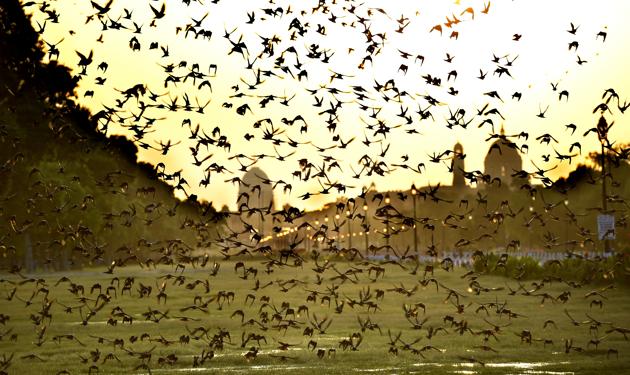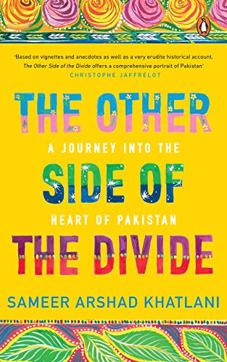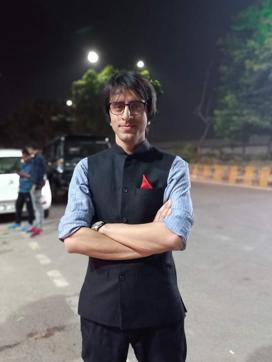Lockdown Diaries: Counting my blessings by Sameer Arshad Khatlani
The author’s experience of the lockdown in Delhi is very different from the ones he lived through in Kashmir
I am no stranger to lockdowns. They were a norm while I was growing up in Kashmir. I was seven when I experienced the first set of sweeping restrictions put on our movement. The curbs were imposed in January 1990 to stem further protests after scores protesting against overnight house-to-house searches were hemmed in and shot dead on a bridge over the Jhelum. It was the first of the many massacres that year, which fuelled the ongoing insurrection. We were confined to our houses in its aftermath for three weeks. Shoot-at-sight orders were in place and our neighbourhoods were suddenly swarmed by men in khaki from all over India. A cousin of mine had a narrow escape when he was fired upon for violating the lockdown. No one dared to venture out thereafter to even get essentials. We fell back on our winter stocks and were forced to survive for the longest time in recent memory on lentils.

We thought the hardships were temporary and shall pass. Little did one know that 30 years on we will still be seeking their end. Many lockdowns and curfews followed those testing days of January-February 1990. We had several brushes with death. The lockdowns soon started appearing like the most benign of the state’s responses to the challenges it faced to its writ. They became a fact of life for those who survived.
Kashmiris are habitual socialisers and cannot do without visiting each other and organising feasts. It was difficult for most to reconcile with the lockdowns. I was not complaining much as an incorrigible introvert and made the most of the extended periods of solitude. I read, wrote and listened endlessly to radio news mostly on BBC World Service. Radios were our most reliable gadgets while the electricity supply was often erratic. The voltage would mostly be so low that people would joke that one needs to light a candle to locate electric bulbs whenever we got some power supply. We made most of the precious daylight. While other children played hide-and-seek, I began taking pages from bond paper notebooks and producing a handwritten newspaper — News Times — based on the information I gleaned from listening to the radio news. Celebrated BBC journalists like Mark Tully and Shafi Naqi Jamie (Urdu Service) fascinated me. I began imagining that one day I would follow in their footsteps and report from around the globe. I found refuge in my goal of becoming a journalist and an author. I had something more meaningful to look forward to.
I have lived a relatively privileged life in Delhi since 2004 far removed from the struggles of people in Kashmir. Every time I found myself in the middle of any lockdown over the last decade or so, I have had the privilege of taking the first flight available back. Every new set of curbs would bring back worries about whether my parents will get their life-saving drugs. But close-knit and generous Kashmiri society would always rise to the occasion and take care of itself. The culture of giving saw Kashmir through the mother of all lockdowns last year when hundreds of thousands were confined to their homes for months to prevent protests against the revocation of the region’s semi-autonomous status. Internet and phones were shut while hundreds were detained.

Kashmir is now battling the coronavirus pandemic and for once, there is a welcome lockdown to halt the disease that has led to curbs for social distancing globally. Unlike the rest of the world, which is relying on technology more than ever before to work, study, remain informed, entertained, safe and connected, high-speed internet remains banned in Kashmir. The lockdown I am experiencing in Delhi is not even remotely similar to lockdowns that Kashmir has faced. I have mostly counted my blessings considering this since it began here on March 25. I have high-speed Wi-Fi. When it got disconnected for some time the other day, I switched to even better 4G phone internet. Before working completely from home, I could breeze past multiple barricades to reach my office. I am putting in more working hours and thanks to technology, I have worked as well as I do otherwise.
I live in a gated community, where purple Jacaranda trees are in full bloom. Spacious houses and fewer people mean lockdown or no lockdown, social distancing is an everyday affair. My study, located at a reasonable distance from our bedrooms and living room-cum-playground for our son, Orhan, 3, provides me much serenity to concentrate better on my work. It offers me a view of my terrace garden and flowering plants about to yield beans, tomatoes, and chillies. The mint leaves have grown enough and can be plucked anytime to be had as chutney with biryani. The only plan that the lockdown has spoiled is the sourcing of seeds to grow cucumbers.
I have done regular grocery shopping that I had not done in years and rediscovered the fun of carrying huge bags of flour all the way to our third-floor duplex. We have never felt so grateful to our house help, who have been doing this work for years. My in-laws continue to shield us, my wife and I, from the pressing concerns of life that otherwise consume the best years of young couples in big cities. They continue to take care of everything, including babysitting, to let us focus on our work.

The only other challenge for us has been to have Orhan sit for his online classes. He has spent most of his free time throwing things around and sketching on walls and running around the house and occasionally insisting on going out. We have been able to introduce him to newer kinds of birds that we have started spotting. The thing he misses, though, are planes flying over our house that remind him of visits to his grandparents, whom he could not spend time with last summer in Kashmir again thanks to the lockdown.
Sameer Arshad Khatlani is the author of The Other Side of the Divide: A Journey Into the Heart of Pakistan. He works with Hindustan Times



